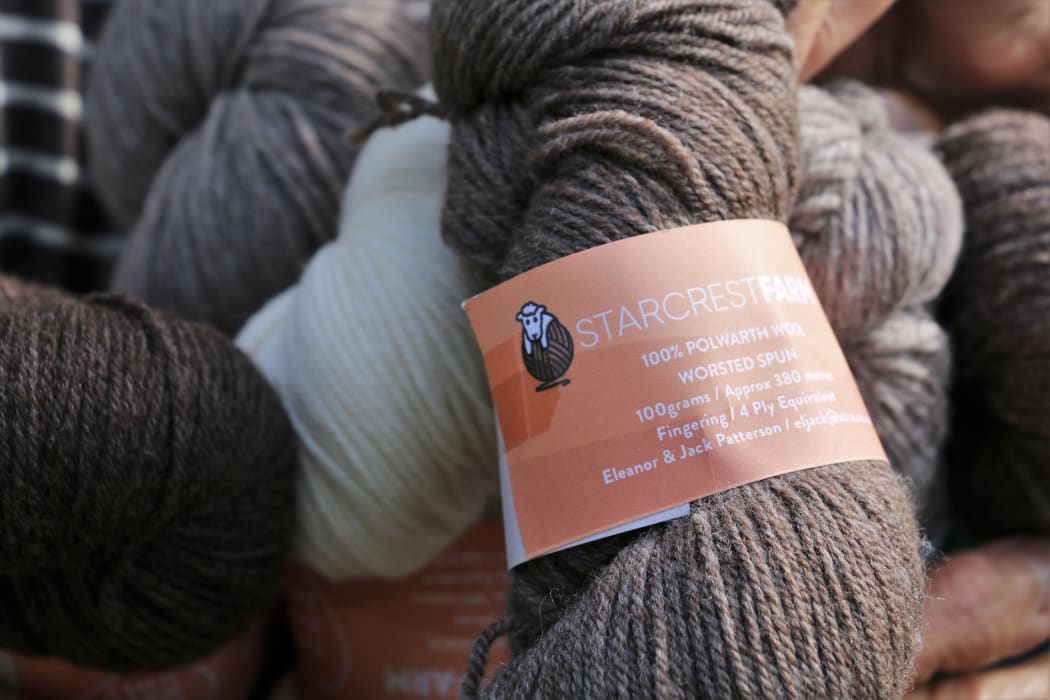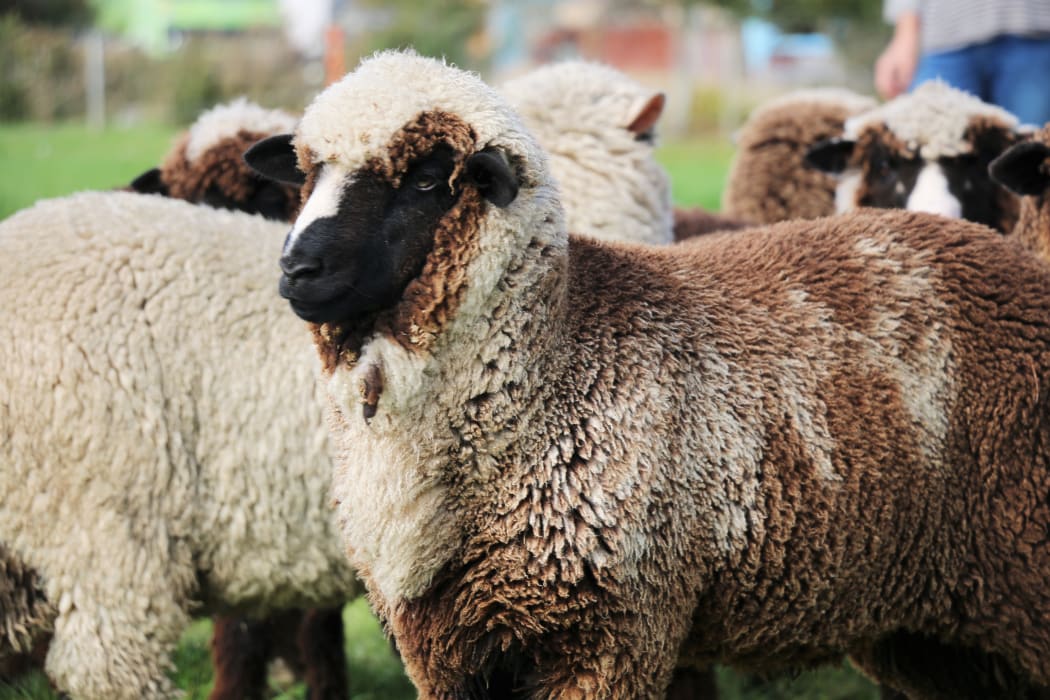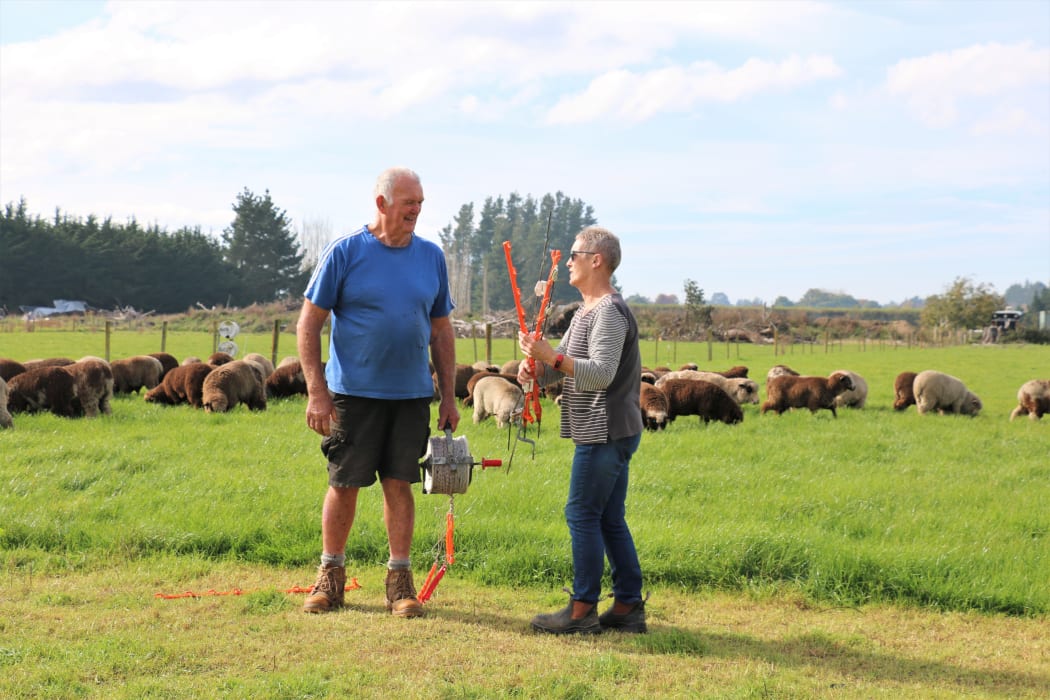Jack and Eleanor Patterson didn't set out to own a flock of 200 Polwarth sheep.
The North Canterbury couple started with a dozen.
"I thought I'd have a few sheep and fleeces for myself and sell a few to members of our spinners and weavers guild, but I never saw it going this far," Eleanor says.
Now the hobby has morphed into a business and the flock's fleece is turned into fine yarns for the couple's own Starcrest Farm brand.

Photo: RNZ / Cosmo Kentish-Barnes
The Polwarth is a dual-purpose sheep, developed in Australia in the 1880s. It is 75 percent Merino and 25 percent Lincoln.
Each sheep averages six kilogrammes of wool.
It ranges between 18 and 23 microns, which is one of the reasons why Eleanor loves working with it.
"It's the fineness of the wool. I like doing fine knitting and spinning and it's a bit more unusual too. There's a lot of Romney and Corriedale wool around for spinning but Polwarth is a bit more unusual," she says.
Farming the sheep is geared towards growing suitable wool for producing high-quality yarns.
"You're trying to maintain a healthy sheep that's not too fat and not too thin," Jack says.
His goal is to get a consistent diameter in the wool and maintain it throughout the year.

Photo: RNZ / Cosmo Kentish-Barnes
Once shorn by Jack and quality checked by Eleanor, the wool clip is sent to Timaru for scouring.
The clean wool goes to Christchurch where it's turned into yarn and combed top for spinning.
Eleanor dyes the coloured wool on the farm and says it over-dyes beautifully and takes on quite different tones.
"There's mustard and green and pinks and dark blues, yeah multiple shades".
"When people see it they want it," Jack says proudly.
The Polwarth yarns are mostly sold through the Starcrest Farm Facebook page, at Creative Fibre events and by word of mouth.

Photo: RNZ / Cosmo Kentish-Barnes

